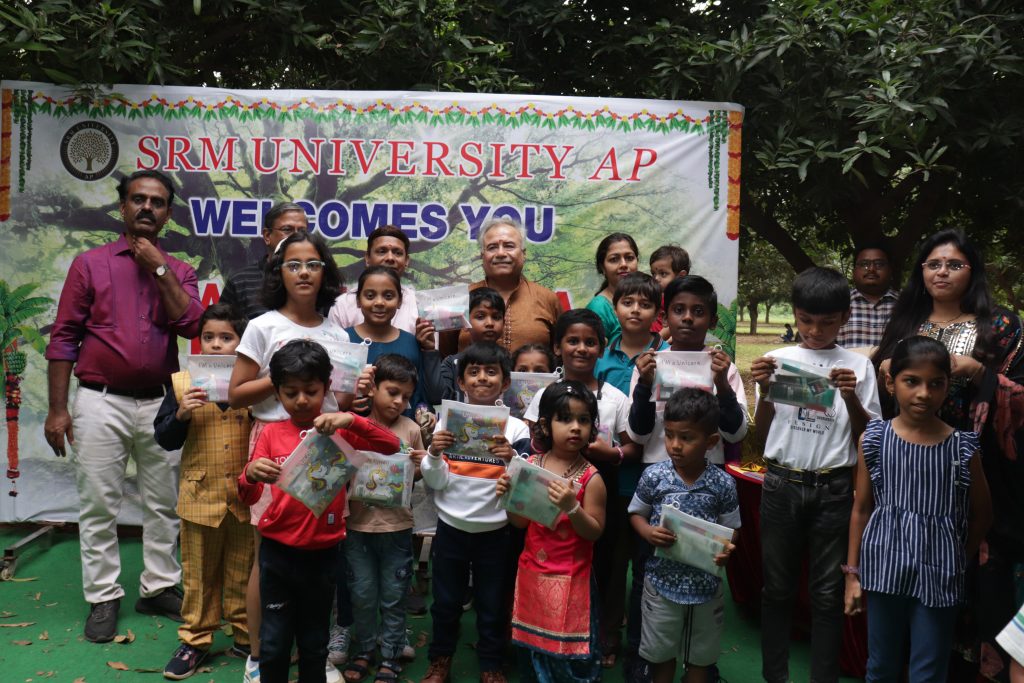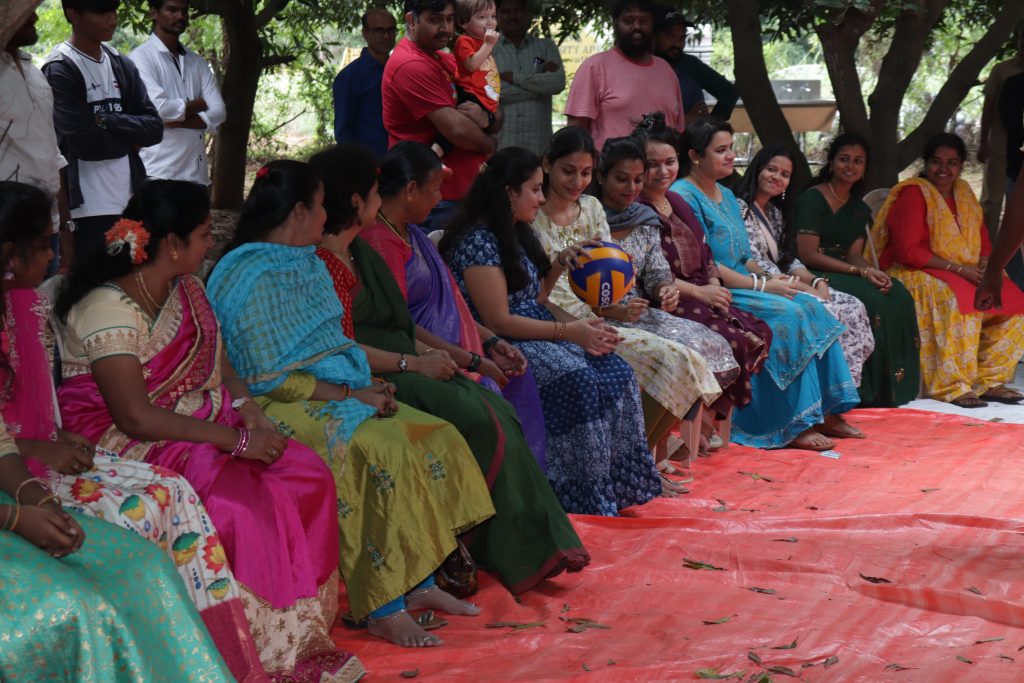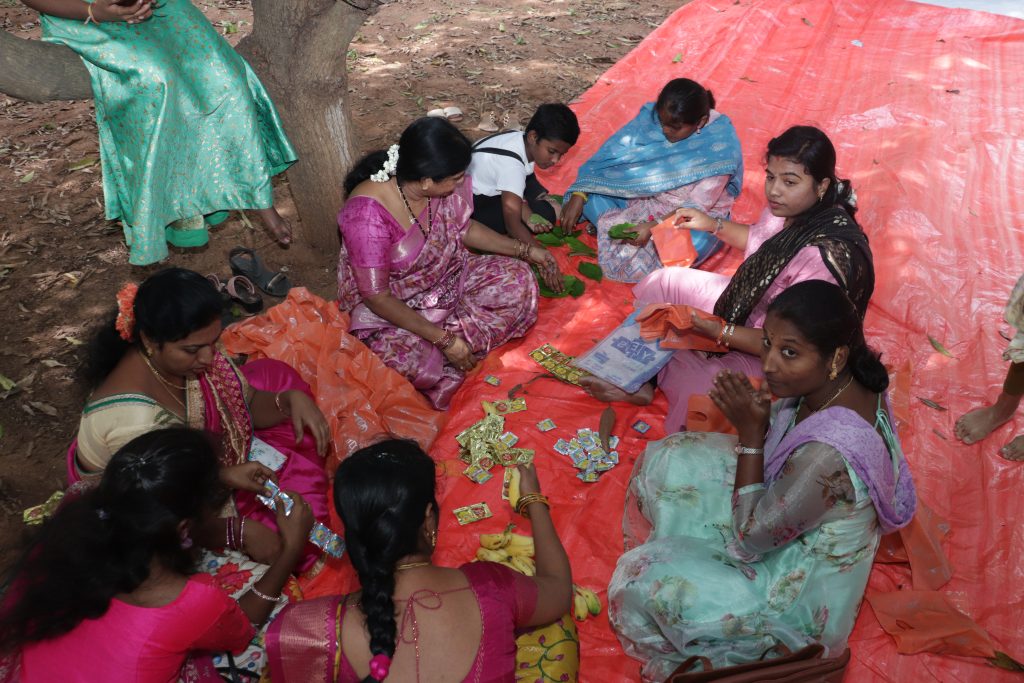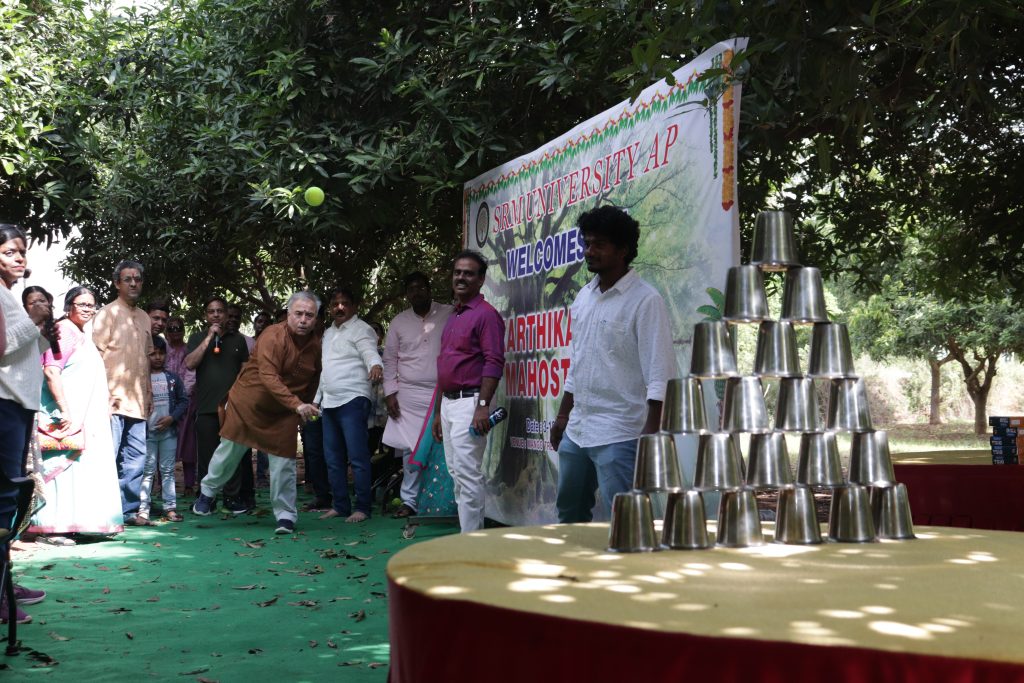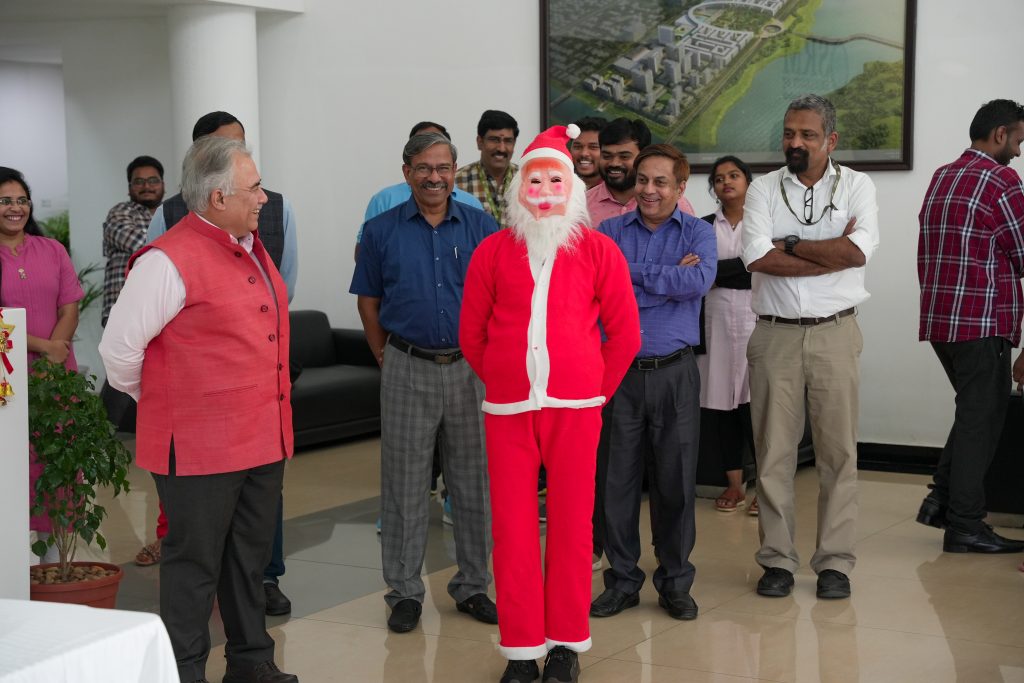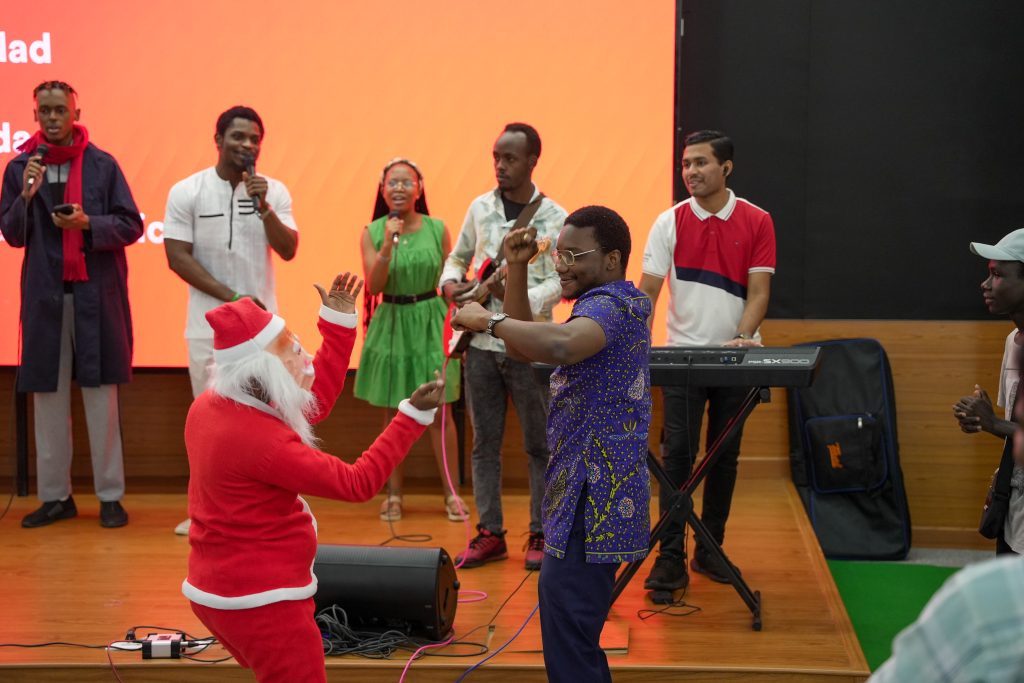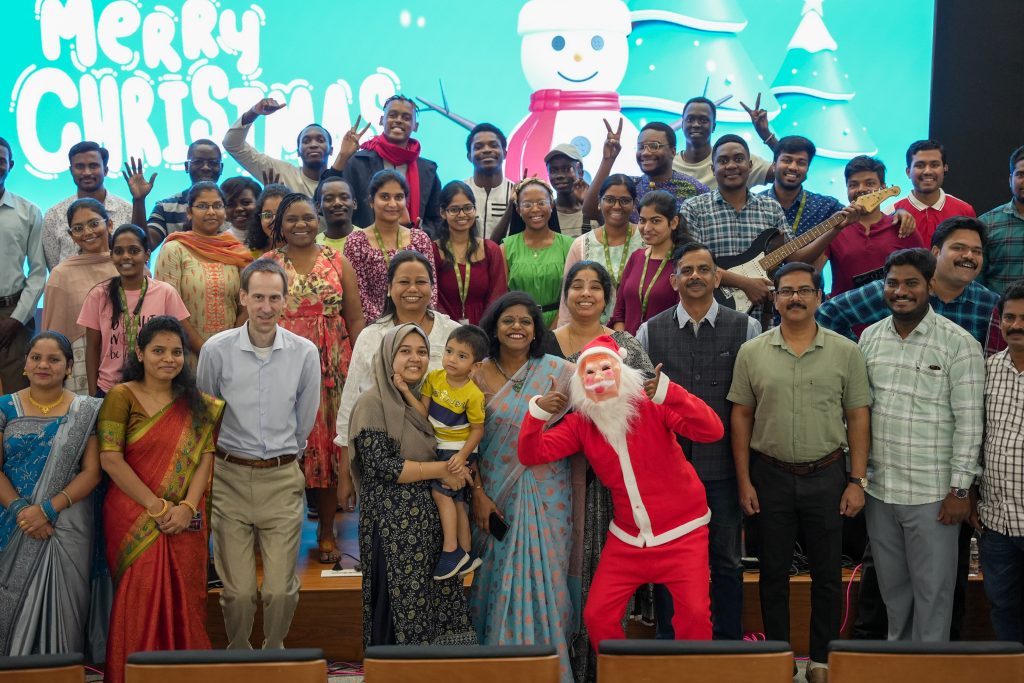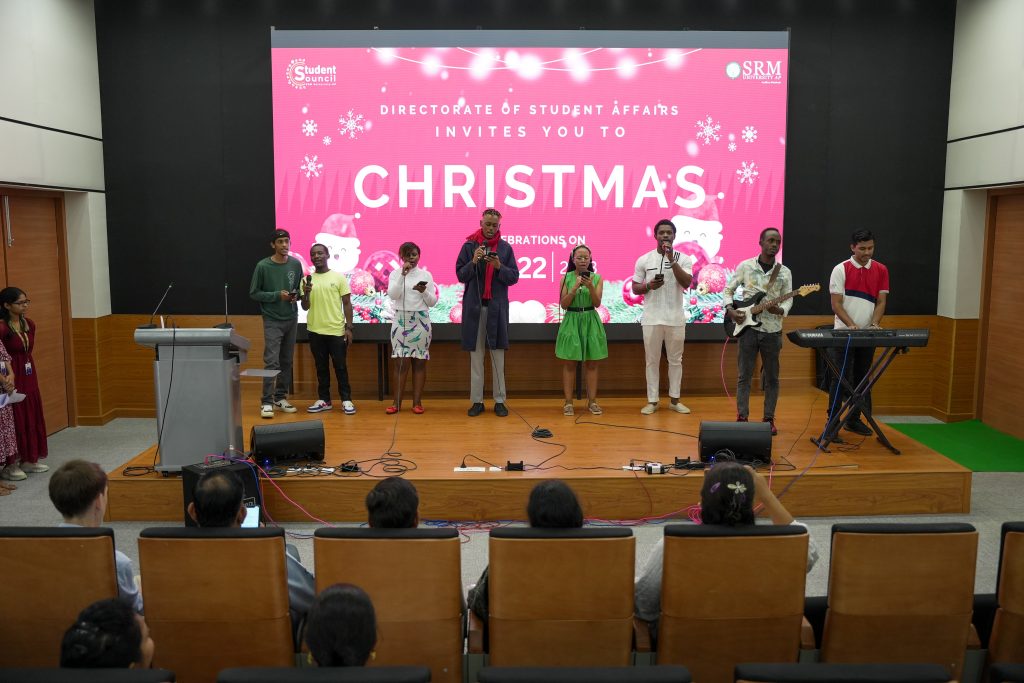Redefining Global Education Standards
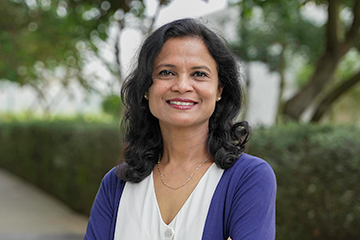
In the dynamic landscape of global education and employment, SRM University-AP reaffirms its commitment to producing not just graduates but global citizens through the instrumental role played by Directorate of International Relations & Higher Studies (IR & HS).
At SRM University-AP, IR & HS stands as a catalyst in producing graduates who transcend geographical boundaries. It goes beyond the conventional approach to education, shaping global citizens equipped to navigate the complexities of an interconnected world. The focus is not solely on degrees but on fostering a global mindset that prepares students for the challenges of a diverse and dynamic workforce. Currently, the university proudly hosts over 150 international students from more than 24 countries who have joined us for BSc, BTech and Management programmes enriching the academic landscape with diverse perspectives.
Global Immersion Programmes, Semester Abroad Programmes, and International Internships offer students immersive experiences, exposing them to diverse cultures and educational practices. These initiatives extend beyond the classroom, providing a holistic education that goes beyond borders. The university has established research collaborations with prestigious institutions such as Maine University, USA, fostering a culture of academic excellence and innovation.
Events such as the Diplomatic Exchange and Global Principal Conclave showcase the commitment of SRM University-AP to fosters global partnerships and collaborations. These forums create opportunities for dialogue, knowledge exchange, and collaborative ventures, enriching the academic experience for students by encouraging the spirit of curiosity, multidisciplinary alliance, inbound and outbound exchanges, research and outreach programs that transcend borders.
In a significant development, the recent appointment of Ms. Aditi Jain as Director of International Relations & Higher Studies (IR & HS) brings a fresh perspective and renewed vigor. With a wealth of over 18 years of experience spanning education, skill development, and the EdTech industry. She has contributed to Fortune 500 companies, the development sector, universities, and global start-ups, including renowned organizations like American Express, Samsung, Microsoft, and Bennett University. Ms. Jain is poised to lead the Directorate to new heights, contributing to SRM University-AP‘s standing as a global education hub.
Harvard Alumnus Joins SRM AP as Director – Entrepreneurship
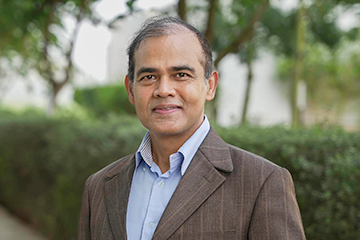
SRM University-AP has recently appointed Mr Sidharth Shankar Tripathy as its new Director of Entrepreneurship & Innovation and Professor of Practice in Entrepreneurship. This appointment is a significant milestone in the varsity’s effort to enhance the entrepreneurial fervour on campus, especially since it’s declaration of the year 2023 as The Year of Entrepreneurship.
Mr Sidharth Shankar Tripathy, an alumnus of Harvard University with a Post Graduate Diploma in Management from S P Jain Institute of Management & Research is a seasoned educator and entrepreneur, who has launched and led several global ventures successfully. As an accomplished entrepreneur, Mr Sidharth Tripathy has founded numerous successful ventures. Some of his notable achievements include establishing Brandgain, Asia’s first Sales & Marketing Process Outsourcing company, and Newzworm, the world’s first global news source for pre-adolescent and adolescent children. His enterprise, Skillizen Learning, provides life skills training across 72 countries. Additionally, he is also the co-founder of “iSEED-The Indian School of Entrepreneurship” and “Life Skills University, Singapore”.
Dr P Sathyanarayanan, Pro-Chancellor of the varsity, welcomed Mr Shankar Tripathy, stating that, “he is an invaluable asset to the university.” He said, “Under his expert guidance, the university will transform its entrepreneurial landscape to achieve institutional excellence.” Vice Chancellor, Prof. Manoj K Arora, also welcomed Mr Tripathy aboard. Prof. Arora expressed his appreciation of Mr Shankar Tripathy’s expertise and leadership that will guide the budding entrepreneurs of the varsity to scale new heights on global frontiers.
In response, Mr Shankar Tripathy expressed his excitement in joining SRM University-AP and stated that “the adrenalin rush of joining the varsity is quite akin to starting his first entrepreneurial venture 20 years back”. He also mentioned that he is thrilled to start this journey to make SRM University-AP, India’s Stanford.
The Entrepreneurship & Innovation Directorate at SRM University-AP is a burgeoning department with over 30 startups under incubation, women-led startups, national and international collaborators like Berkeley University of California, Stanford SEED, MHRD, Start-up India, MSME, and APSSDC to name a few. The varsity believes that the Directorate of Entrepreneurship and Innovation will further flourish with Mr Sidharth Shankar Tripathy at its helm.
- Published in News
Karthik Vana Mahotsava: A Green Celebration of Nature’s Bounty
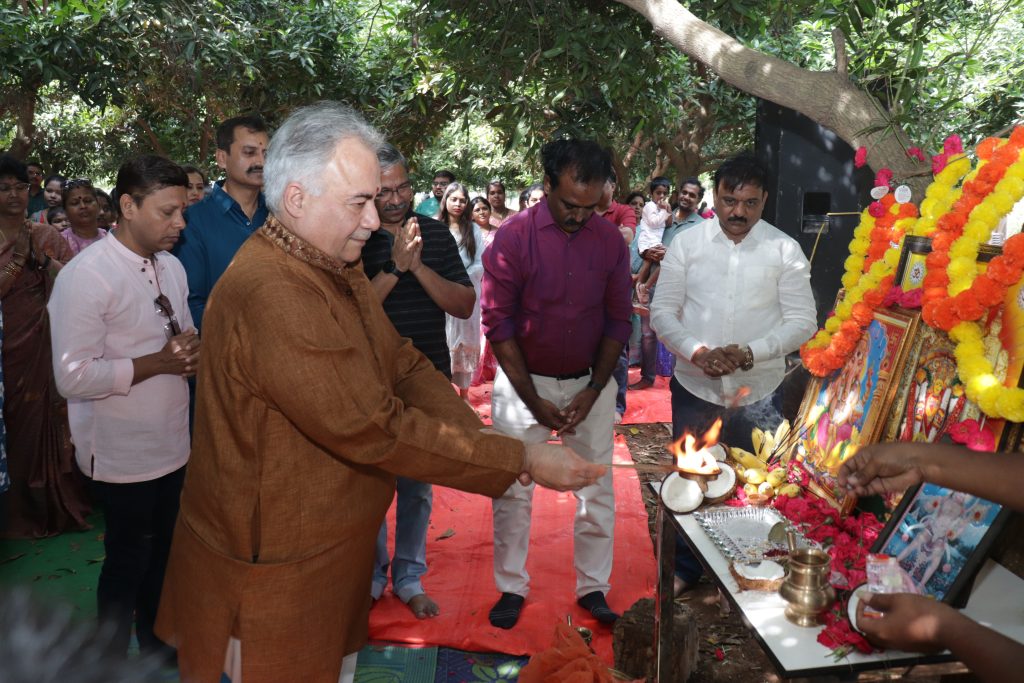
In the Karthik month of the Hindu calendar, a vibrant and eco-friendly celebration, Karthika Vana Mahotsavam took centre stage at SRM University-AP. The varsity honoured the tradition and fostered environmental consciousness with its Vanamahotsavam. This annual event has become a significant tradition in the varsity and draws faculty and staff and their family members from different communities together to celebrate the beauty of the earth and promote sustainable living.
The celebration that took place in the Mango Gardens, near Sri City in Nidamaru saw the participation of members of the leadership including Vice Chancellor, Prof. Manoj K Arora; Registrar, Dr R Premkumar, Directors and former members of the leadership. The Vana Mahotsava intended to honour both nature and celebrate the bond between humans and nature was organised by the Directorate of Human Resource Management.
The event also saw children and families bonding over games and other exciting activities organised by the Directorate. Vanamahotsavam was a holistic way of fostering a sense of responsibility for future generations and served as a reminder that small, concerted efforts can contribute significantly to the global movement for a greener and more sustainable planet
- Published in News, University Event
Celebrating Christmas on Campus: A Joyous University Tradition
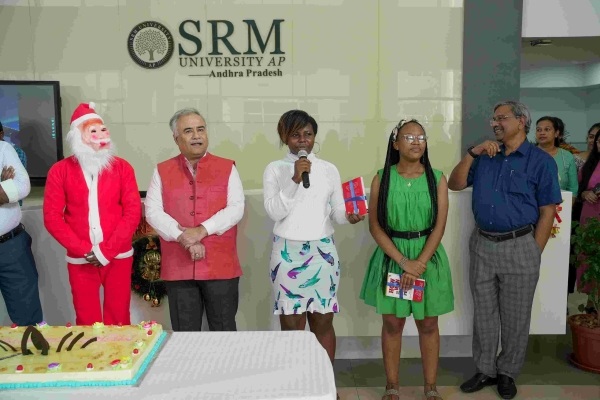
The spirit of Christmas echoed through the halls of our campus this year as students, faculty, and staff came together to celebrate the festive season. The Christmas celebration organised by the Directorate of Student Affairs was a grand affair, with enthusiastic participation from key figures, including the Vice-Chancellor, Registrar, Deans of all schools, and dedicated faculty and staff.
The event saw an inclusive participation of international students, adding a global touch to the festivities. The diverse cultural backgrounds of the international students enriched the celebration, reflecting the unity in diversity that defines the academic community at SRM University-AP.
One of the highlights of the Christmas celebration was the active involvement of the university leadership. The Vice-Chancellor, with a radiant smile, inaugurated the event, setting a joyous tone for the entire gathering. The heart of the celebration was the involvement of both local and international students. The student affairs directorate organised a series of entertaining games and activities that brought everyone together. International students, showcasing their unique talents, not only participated actively but also emerged victorious in several competitions, winning well-deserved prizes.
- Published in News, Students Affairs Events


